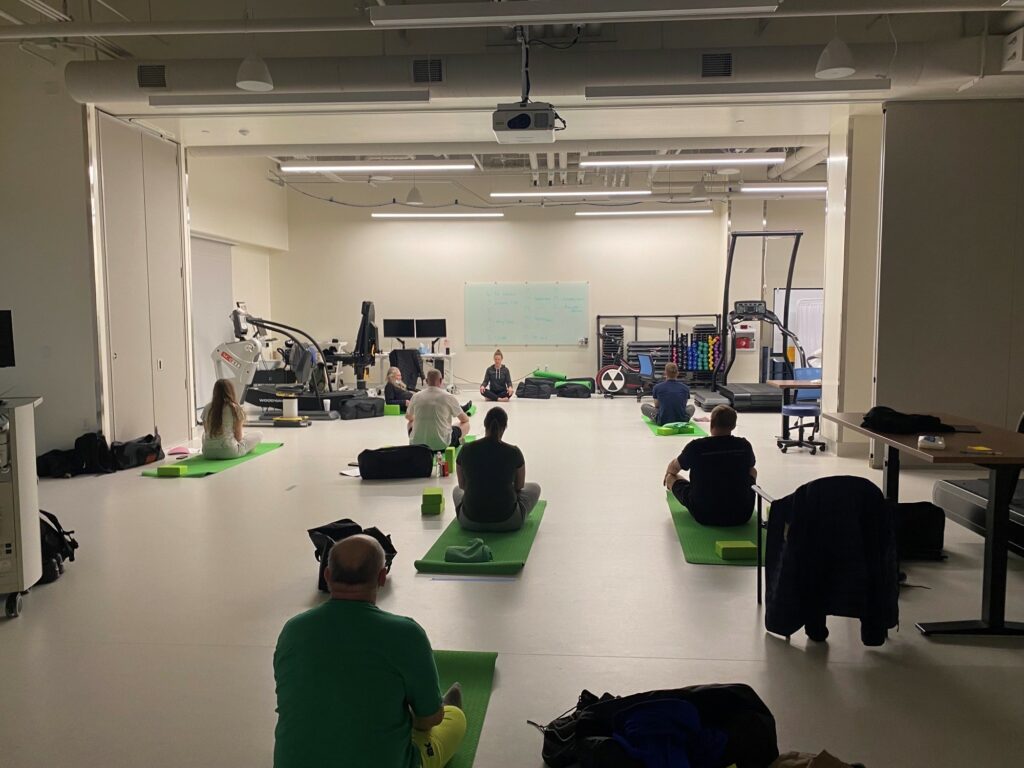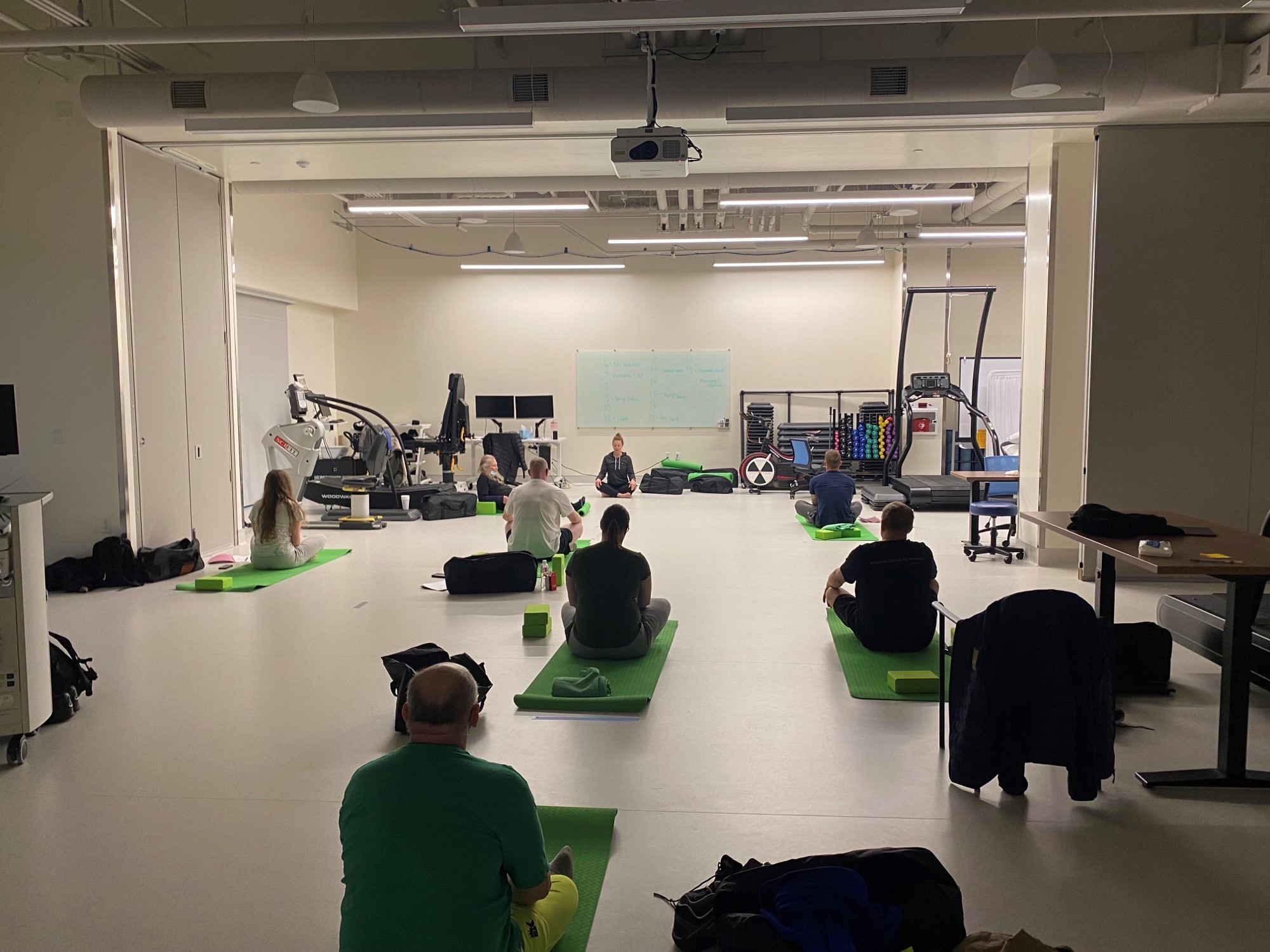By Jill Nuelle, communication intern in the Office of Marketing and Communication

Dr. Rachel Bollaert has long been interested in the relationship between exercise and neuroscience. So, when she had the opportunity to meet with Dr. Jacklynn Fitzgerald, an assistant professor of psychology who works with individuals who have Post-Traumatic Stress Disorder, the two set out to combine their respective expertise to help a particularly vulnerable population: U.S. combat veterans.
With limited treatment options for the condition that affects about 12 million adults in the U.S. during a given year, Bollaert, a clinical assistant professor of exercise science in the College of Health Sciences, and Fitzgerald sought funding from the Clinical Translational Science Institute of Southeast Wisconsin (CTSI) to explore how physical activity — specifically yoga — could improve these patients’ symptoms.
The research team, which includes co-principal investigators Dr. Cecelia Hillard, associate dean for research and director of the neuroscience research center at the Medical College of Wisconsin, and Dr. Jeff Whittle, staff physician at the Clement J. Zablocki VA Medical Center, received a $27,015 CTSI grant to advance their work.
According to Fitzgerald, those who treat individuals who have PTSD with traditional therapy often seek complementary strategies to manage symptoms. While some research into the benefits of exercise and physical activity exists, Fitzgerald points out that, like many Americans, veterans report low rates of physical activity.
The study first addressed a lack of information available to veterans regarding the therapeutic benefits of physical activity and the barriers they might face to exercise.
To explore this, the researchers issued an online questionnaire to veterans throughout southeastern Wisconsin inquiring about their current physical activity levels, motivations for exercise, and barriers to activity, as well as specifically about their thoughts on and experiences with yoga.
In phase two of the project, veterans participated in a yoga program at the Athletic and Human Performance Research Center.
Twelve veterans participated in phase two where each completed biometric assessments that examined body composition, muscle strength, range of motion and aerobic fitness, as well as psychological measures such as cognition, sleep, self-efficacy and motivation.
Knowing how the body handles stress, Fitzgerald explains, is key to understanding how a physical intervention like yoga can alter that response.
MCW’s Hillard researches trauma by studying its effects on laboratory rodents. While many people know the body releases hormones when experiencing stress, few realize there is a complementary system — the endocannabinoid system — that has been found to play a role in regulating physiological and cognitive processes, including stress. Hillard’s work has shown that system becomes dysregulated in rodents who have experienced trauma.
“Our current study is really at the forefront of translating what is known about this system in a preclinical model, such as in rodents, to what we know about humans, and then specifically humans who have disorders like PTSD,” Fitzgerald explains.
‘The face of the disorder’
According to Bollaert, while some of their research participants are younger veterans in their late-20s or early-30s, the cohort also includes Vietnam veterans who have lived with PTSD for decades. It is important to acknowledge that they have not had access to successful treatments, and there is a strong sense that they have tried many different methods throughout the years, she says.
Participant response has been overwhelmingly positive, the researchers say, citing strong attendance at each yoga session. Fitzgerald partially credits this to the instructor who was specially trained through the Veterans Yoga Project, a national program that specifically looks at yoga as a modality and includes components of mindfulness and mindful resilience.
The yoga sessions will continue through May, and Fitzgerald, Bollaert and team hope to focus on data processing this summer and have an initial look at this important study’s key findings by the end of the season.
Bollaert and Fitzgerald say there is intense demand for studies like theirs.
“Veterans with PTSD are very much the face of the disorder. A lot of people recognize that veterans may have PTSD, yet that population is completely underserved for how to treat it,” Fitzgerald says. “The typical veteran does not get access to care. They have a low referral rate. They complete treatments last. So, they really are arguably the most in need of some sort of treatment and would be the most benefited by it.”



